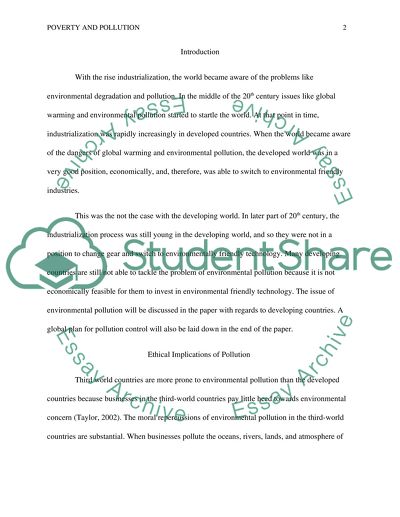Cite this document
(Poverty and Pollution Coursework Example | Topics and Well Written Essays - 1500 words, n.d.)
Poverty and Pollution Coursework Example | Topics and Well Written Essays - 1500 words. Retrieved from https://studentshare.org/environmental-studies/1616170-poverty-and-pollution-case-study
Poverty and Pollution Coursework Example | Topics and Well Written Essays - 1500 words. Retrieved from https://studentshare.org/environmental-studies/1616170-poverty-and-pollution-case-study
(Poverty and Pollution Coursework Example | Topics and Well Written Essays - 1500 Words)
Poverty and Pollution Coursework Example | Topics and Well Written Essays - 1500 Words. https://studentshare.org/environmental-studies/1616170-poverty-and-pollution-case-study.
Poverty and Pollution Coursework Example | Topics and Well Written Essays - 1500 Words. https://studentshare.org/environmental-studies/1616170-poverty-and-pollution-case-study.
“Poverty and Pollution Coursework Example | Topics and Well Written Essays - 1500 Words”, n.d. https://studentshare.org/environmental-studies/1616170-poverty-and-pollution-case-study.


